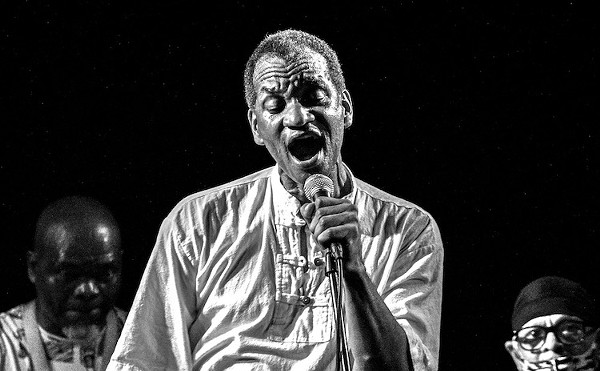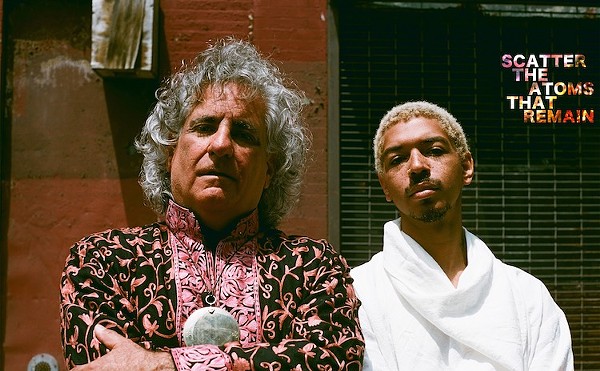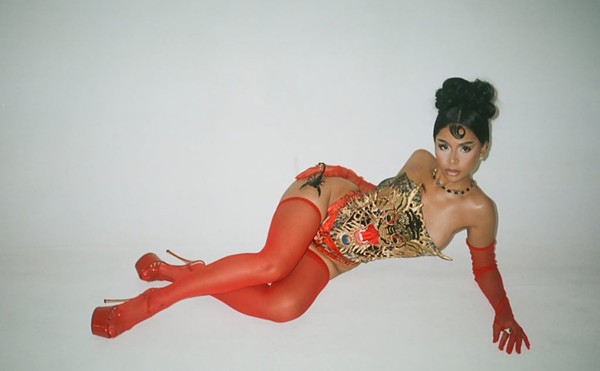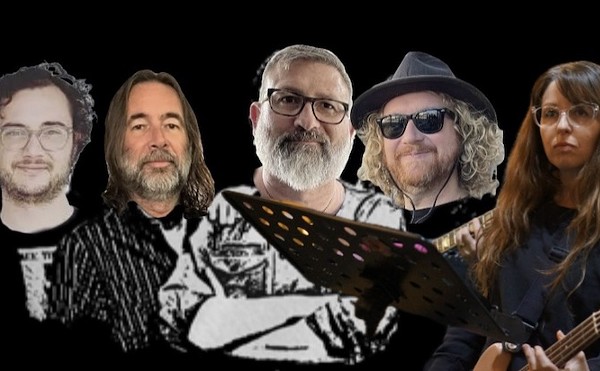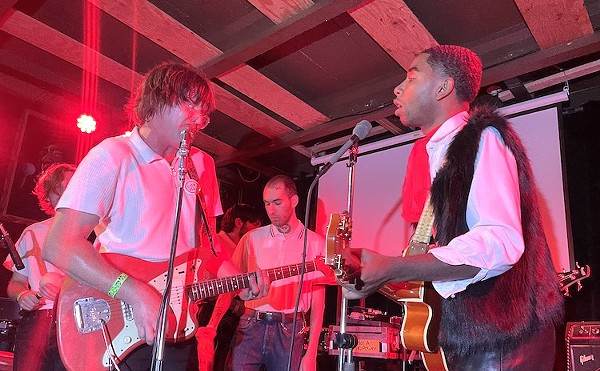They're the punk-rock Beatles and the best British answer to the Ramones. Led by singer/guitarists Pete Shelley and Steve Diggle, the Buzzcocks spawned in the spunky aftermath of a Sex Pistols show. Their facility with melody, melded to a thundering, amphetamine sound, distinguishes them from their late-'70s punk brethren, helping create some of the best singles of that era, including "Orgasm Addict," "Ever Fallen in Love," and "Harmony in My Head."
While vestiges of the British-punk invasion like The Jam, The Clash and The Sex Pistols are but nostalgic memories, the Buzzcocks continue to pump out creative product 10 years removed from their reunion after a hiatus through most of the '80s. If Wire's recent "Read & Burn" EPs were something of a shock in their return to their "Pink Flag/154"-era style, then the Buzzcocks' self-titled latest album is precisely what fans have been expecting for the last decade-plus. Everything that's wonderful about the band is here: sing-along choruses with bright backing vocals, loud, chunky guitar and hummable riffs, underwritten with a sly sense of lyrical mischief.
Shelley has an easy manner and diction as he explains the return to a crunchier sound from their more new-wavish album, "Modern." "It's been about five years since we first started working on 'Modern.' So during that time the whole musical climate has changed," he says. "I've always been interested in heavy-sounding guitars, it seems such a natural thing to turn it up to 11."
"It's like a live thing with a bit more polish for the radio. It's a heavier sounding record and it's more full-on. It was kind of natural, but we did have that in mind. We said, 'We'll make a full-on rocking album.' Even though we wrote separately, any day this was in the shit," Diggle offers in a gruff, thick Manchester brogue.
The duo met before a Sex Pistols show, where they were each supposed to meet another musician they'd contacted through an ad in the paper.
"It was all like some farce, some weird funny play. We were talking at cross-purposes for 20 minutes before we realized we weren't the people we were supposed to meet," recalls Diggle. "I didn't know where the one guy was, and he didn't know where the other one was at that he was supposed to meet, so I said, 'I'll tell ya what, we'll rehearse tomorrow and see how it goes.' It was three of us [with since-departed Howard Devoto] plugging through one amp and a fast and furious noise came out. It sounded terrible -- very uncommercial and awful -- but there was a greatness in there."
Devoto left the group within the first half-dozen shows, shortly after they recorded their monstrous debut EP, "Spiral Scratch," containing such classics as "Boredom" and "Love Battery." He remains in touch with the band, and they even resurrect one of those 27-year-old Devoto-penned tunes, "Lester Sands," on the new record. Reminiscent of Wire's "1,2XU," it's a screed against the "kind of person you love to hate" according to Shelley.
"We used to play it during soundchecks, and when we were talking about what songs to do [on the new album], we said, 'Well, that's a good fast song.' So we did that. It's older than most of the audience," he laughs.
Unlike many of their aforementioned peers, the Buzzcocks shied away from openly political songs like "God Save the Queen" or "London Calling," couching their social commentary on amorous pursuits ("What Do I Get?"), love's rules ("Promises") and life's omnipresent difficulties ("Something's Gone Wrong Again") in punchy, high-throttle tunes dripping with irony.
"I'd rather go for a happy tune with miserable lyrics because it's a lot better than having a miserable tune and very happy lyrics," says Shelley. "The thing is by showing how bad the situation really is, you can make a great comic tragedy out of it. That's why the blues works so well, because some of it is comic. Just by overestimating and overstating how bad things are, you can make it quite funny."
Diggle agrees, suggesting, "I think we dealt more with the human condition. The everyday things about being human, problems [that] we can all relate to. All the highs, the lows, the tragedies. I think we deal with on a little bit more of a philosophical scale. The world's a complex place ... you can't just wave a finger and blame one guy in government or something. It's a massive picture out there that's very fucking complex, and we're very fragile in the middle of all this."
Asked how punk has changed from its insurgent roots where people actually felt threatened by it to something Carson Daly introduces on "TRL," Shelley offers a personal passage from the punk-rock handbook.
"It's about being an active participant in your culture, rather than just being a passive consumer. All the major conglomerates, that's what they want you to do: to consume and think you can do nothing for yourself, like buy a loaf of bread rather than making it for yourself," Shelley says. "The whole idea was about expressing yourself and making songs relevant to you and the life you were leading. That was the basic reading of the manifesto of punk song lyrics. Instead of writing about glamorous locations and the rock-star lifestyle, you were writing about everyday things that affected you from boredom to orgasm and all points in-between."




